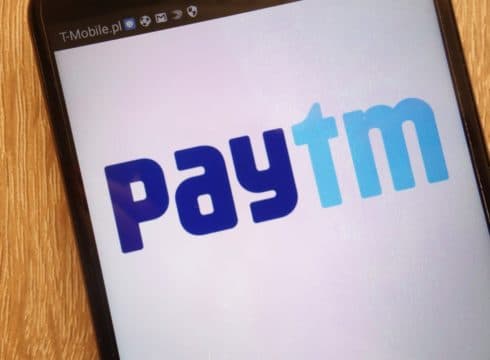IPO-bound fintech Paytm has expanded its ESOP pool from 24 Mn to 61 Mn — nearly 2.5x — after shareholders’ approval, according to a filing
Initially, 166 former and current employees had converted their ESOPs to shares; the number has now increased to 204
Paytm has a total paid-up capital of approx INR 60.7 Cr, where 909 employees have over 14 Mn vested ESOPs
Inc42 Daily Brief
Stay Ahead With Daily News & Analysis on India’s Tech & Startup Economy
After an extraordinary general meeting (EGM) held on September 2, IPO-Bound Paytm has increased its employee stock option plan (ESOP) pool from a little over 24 Mn to 61 Mn — nearly 2.5x. Initially, 166 former and current employees had been allotted over 1 Mn shares at INR 9 each in exchange for their ESOPs including Amit Nayyar, who used to be Paytm’s president before his exit in June, as well as Rohit Thakur and Amit Veer who exited the company before the IPO.
According to an MCA filing, 40 current and former Paytm employees, including V Sasiraman of TicketNew — a Chennai-based ticketing startup acquired in 2018 by Paytm — have now converted their ESOP options to 332K shares.
Further, since turning ESOPs to shares will cost employees taxes and other fees, Paytm has proposed to help them get loans from its established lending partners. “Paytm will facilitate loans of up to INR 100 Cr through its lending partners. It will also bear the interest of these loans for six months so that employees can handle their finances better and yet, become proud shareholders of the company,” according to a PTI report.
Inc42 had earlier reported that ahead of its IPO around Diwali, Paytm was seeking shareholder approval to increase the existing ESOP pool from 24,094,280 equity options to 61,094,280 equity options at a face value of INR 1 each.
It was also seeking approval to revise the employment agreement of Vijay Shekhar Sharma as Managing Director and CEO, and approve the appointments of Neeraj Arora, the former chief business officer of Whatsapp, Ashit Ranjit Lilani, managing partner of Saama Capital, as non-executive independent directors, and Douglas Feagin, senior vice president, Ant Group, as a director.
Further, according to the filings, the following appointments have been materialised shortly after the appointment of Ajay Shekhar Sharma — brother of its founder and CEO Vijay Shekhar Sharma — as its chief business officer (CBO) of its Marketing Cloud Business vertical. Paytm has also elevated Senior VPs Ripunjai Gaur, and Abhay Sharma to CBO for Offline Payments and Bill Payments verticals respectively.
Founded in 2009 by Vijay Sharma, One97 Communications, the parent company of Paytm, filed its draft red herring prospectus (DRHP) for public listing earlier this year. With the IPO, the unicorn aims to raise INR 16,600 Cr. Its offer comprises a fresh issue of INR 8,300 Cr and an offer for sale (OFS) worth INR 8,300 Cr.
Paytm had a total paid-up share capital of 60.7 Cr shares of face value INR 1 each, where 909 employees have over 14 Mn vested ESOPs, according to the company’s draft IPO documents, filed in July.
The Importance Of ESOPs For Employees of IPO-Bound Companies
In the past year, several Indian startups including PhonePe, ShareChat, Zerodha, Unacademy, Razorpay, Moglix, and BharatPe announced ESOP buybacks. For companies that are not listed, ESOPs for their employees are useless. Hence, a partial exit is simulated for the employees when the company buys back ESOPs from its workforce at the prevailing stock price of the company.
But, in the case of companies planning IPOs such as Paytm, and CarTrade & Zomato previously, ESOPs allow employees at the startup to become a bigger part of the success of the company. Founders and investors share the wealth that the company creates with employees through ESOPs, rewarding those taking the risk of working for a firm when it was in a nascent stage — improving pay packages, thus ensuring a higher employee retention rate.
But once the startup becomes popular or gets listed, ESOPs fetch spectacular returns; for example, ESOPs have made millionaires of many ordinary Infosys employees, and most recently the net worth of senior executives of Zomato employees also took off.
While the downsides include the close of the exercising period, a heavy tax on the fair market value and the exercise price, and lower initial payout, with a boom in the startup ecosystem in India, employees — not just senior, but even middle management — are increasingly taking front seats with increased opportunities to monetise and get long-term benefits of their hard work.
{{#name}}{{name}}{{/name}}{{^name}}-{{/name}}
{{#description}}{{description}}...{{/description}}{{^description}}-{{/description}}
Note: We at Inc42 take our ethics very seriously. More information about it can be found here.


